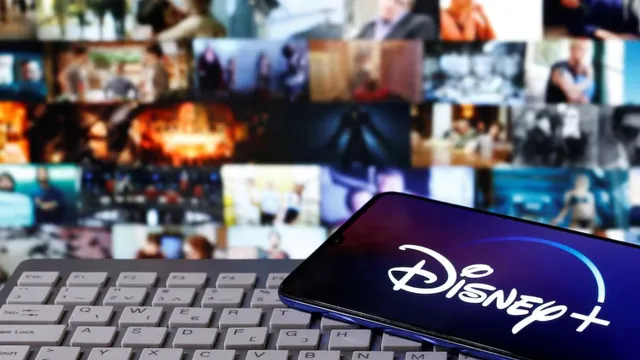- By Alex David
- Thu, 12 Jun 2025 04:43 PM (IST)
- Source:JND
In a significant legal development, Walt Disney and Comcast's Universal Studios have jointly filed a federal copyright infringement suit against AI image generator Midjourney, accusing the firm of characteristically violating their most beloved figures for copyright with Midjourney’s AI Image Generator. The case, submitted Wednesday in The District Court for the Central District of California, could serve as a proving ground for the collision of several interests in the field of AI content generation and copyright law.
Studios Accuse Midjourney of Rampant Copyright Infringement
The lawsuit accuses Midjourney of pirating the creative libraries of both studios to generate and distribute “innumerable” unauthorised copies of characters such as:
- Darth Vader from Star Wars
- Elsa from Frozen
- Minions from Despicable Me
- Yoda, Buzz Lightyear, Iron Man, Shrek, Toothless, Po from Kung Fu Panda, and more
As stated by the studios, these recreations can be generated through the input of simple text strings due to Midjourney's AI model, which is purportedly trained on copyrighted material taken from the web.
“Piracy is piracy, and the fact that it's done by an AI company does not make it any less infringing.” — Horacio Gutierrez, EVP & Chief Legal Officer, Disney
“We’re suing to protect the hard work of artists and the significant investments we make in our content.” — Kim Harris, EVP & General Counsel, NBCUniversal
Industry Backing and Copyright Concerns
The Motion Picture Association (MPA) backed the lawsuit and called on AI creators to honour trademarks and copyrights.
“Strong copyright protection is the backbone of our industry,” said Charles Rivkin, MPA Chairman.
“We support a balanced approach to AI that embraces responsible innovation while safeguarding creativity.”
The studios allege that they requested Midjourney to stop using their copyrighted material or at least put some technological restrictions. The company allegedly retaliated by releasing new versions of their AI that produce even more infringing images at higher quality.
ALSO READ: Google Pixel 10 Could Feature Qi 2.2 Wireless Charging And New Pixelsnap Ecosystem
Details of the Lawsuit: A "Free-Rider" on Hollywood Creativity
The lawsuit—brought by seven corporate entities representing Disney and Universal film divisions—alleges Midjourney:
- Copied protected characters for training its AI
- Monetized the service via paid subscriptions
- Generated an estimated $300 million in revenue in 2024
The filing also includes specific examples of characters recreated without authorization, including:
- Bart Simpson on a skateboard
- Marvel’s Iron Man flying through clouds
- Pixar’s Buzz Lightyear taking flight
- Toothless from How to Train Your Dragon
- Shrek and Kung Fu Panda’s Po
“Midjourney is the quintessential copyright free-rider… and a bottomless pit of plagiarism,” the lawsuit states.
Legal Action and Industry Implications
Disney and Universal are seeking:
- A preliminary injunction to halt Midjourney’s use of copyrighted materials
- Restrictions on Midjourney’s image/video generation without copyright protection mechanisms
- Unspecified monetary damages
This lawsuit is similar to a previous ongoing case with Midjourney and Stability AI, where some artists accused the companies of using their works to train AI models without permission. A judge allowed that case to move forward in 2023.
In a 2022 interview with Forbes, Midjourney founder David Holz admitted using “a big scrape of the Internet” to build the training set.
When asked if artist consent was obtained, he said, “There isn't really a way to get a hundred million images and know where they're coming from.”
AI vs Copyright
This case contributes to the increasing number of cases concerning copyright infringements against AI developers where authors, journalists, and music labels have also filed cases for unauthorised use of copyrighted materials.
If Disney and Universal win, it may create a legal framework for strict adherence to copyright regulations for AI training and generation, fundamentally altering the landscape of the AI industry.

